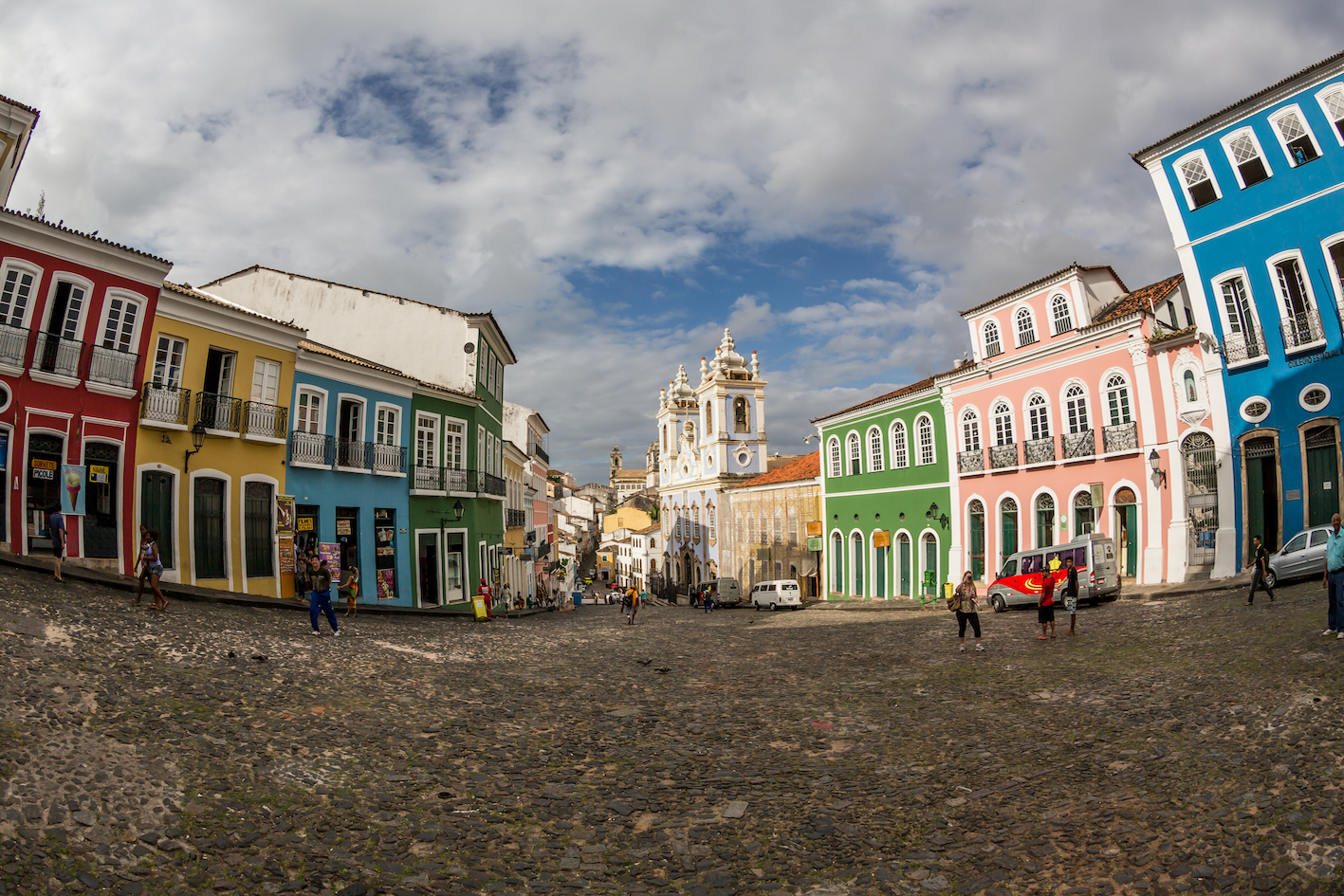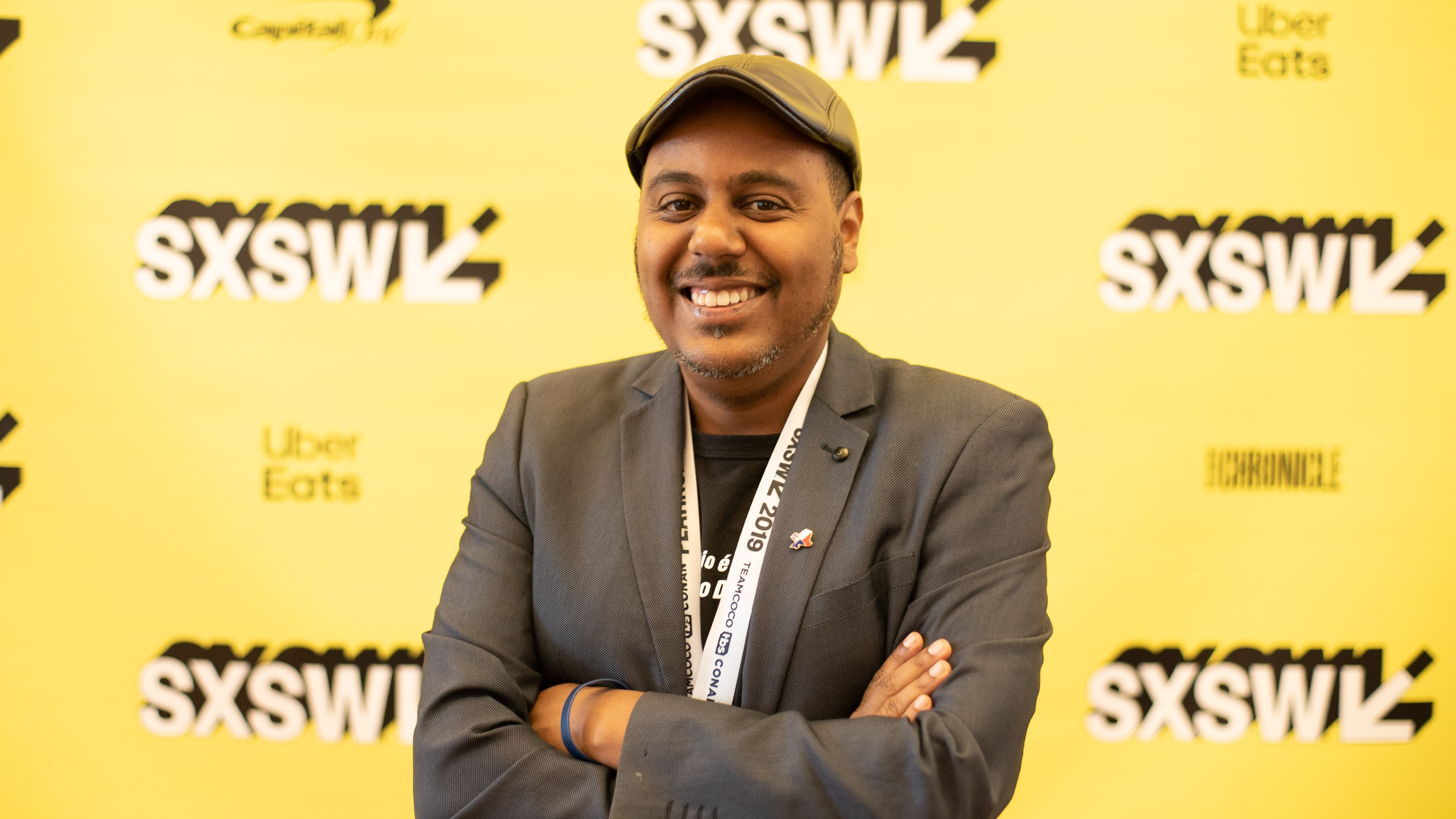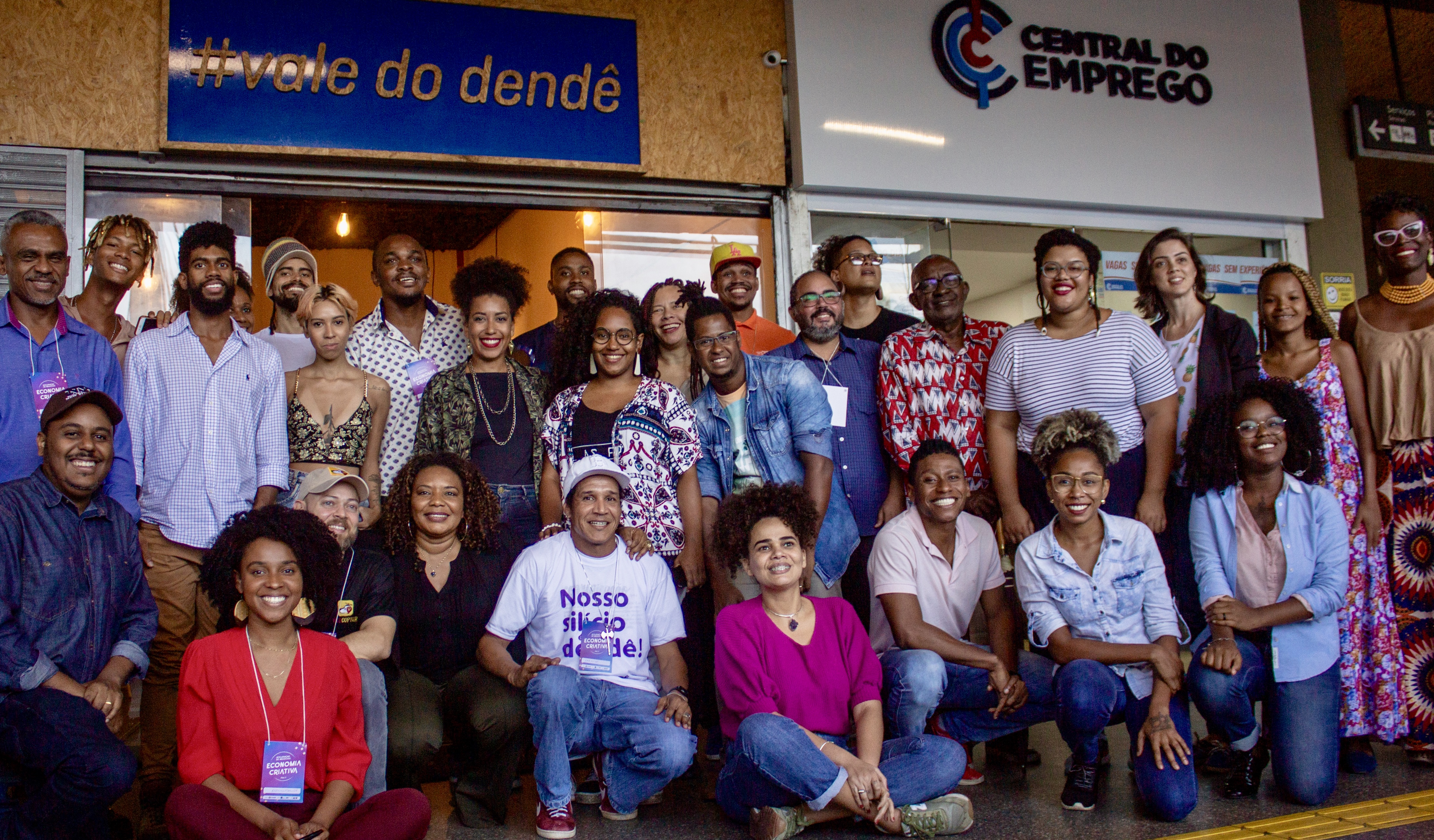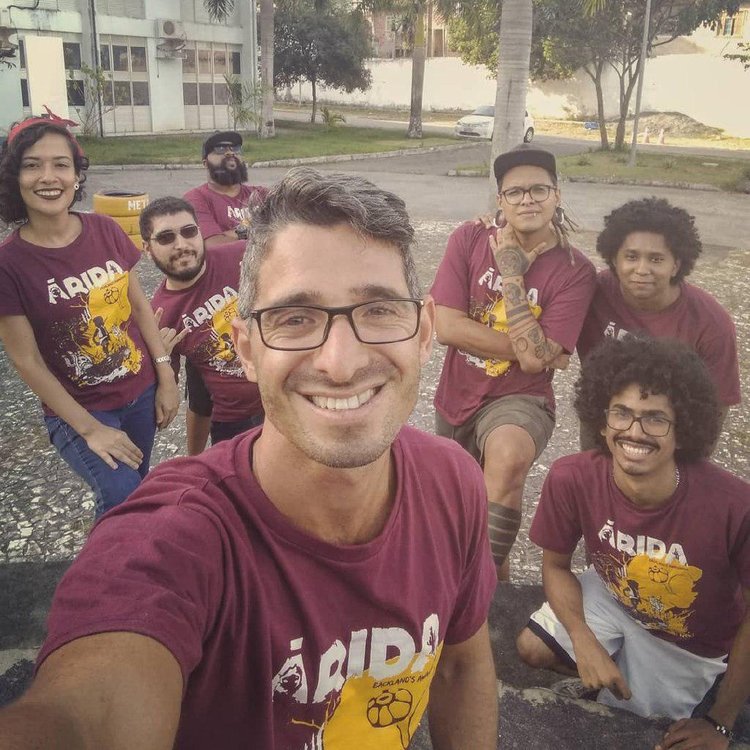Salvador de Bahia: Brazil’s new capital of creative enterprise?
Inequality, racism and poverty are entrenched problems for the beautiful city of Salvador de Bahia. But its artistic and musical roots go deep, giving great potential for regeneration. Martin Guttridge-Hewitt explores new support for the city’s social and creative entrepreneurs.
Millions of Brazilians have been lifted from destitution since the turn of the century. Despite the hangover from a major recession in 2015-16, GDP remains in the global top ten. Yet the country’s six richest people have wealth equivalent to half the population, with 25% living in poverty.
In Salvador de Bahia, the nation’s original capital and fourth largest city, inequality is particularly extreme. Home to 2.9 million people, the vast majority — roughly four-fifths — are of African descent, and in a country where systemic racism dating back to Portuguese occupation leaves non-whites at risk of severe economic exclusion, problems associated with wealth distribution are pronounced.

Salvador's historic city centre is beautiful but the Portuguese occupation not only left a legacy of colonial era architecture but also systemic racism
Although troubled, Salvador, on the north-east coast of Brazil, is a major tourist attraction, and for reasons beyond photogenic pastel-hued houses and colonial-era architecture. Its cultural might is immense. This is a UNESCO City of Music – laying claim to the birth of tropicalia, where African rhythms and pop rock meet, and more latterly the reggae-calypso fusion of axé. And Brazil’s most iconic carnival (billed as “the world’s largest party”) takes place here each February, attended by an estimated 2.5m people over six days.
Its fertile art scene has given rise to a slew of prized practitioners. From living greats such as Menelaw Sete, whose expressionism deals with the African and Bahian experience, to Pierre Verger, one of the Brazil’s most significant 20th century photographers, his work often centered on Salvador’s Candomblé religion, and its roots in Nigeria’s Yoruba population. The city has creativity in abundance, but retaining talent is the problem.
Support for digital and creative entrepreneurs
“The best minds were leaving Salvador,” Paulo Rogério Nunes says of the chronic brain drain that led him to establish Vale do Dendê in 2016, a business accelerator which supports digital and creative startups. Understanding the economic significance those industries now have, and recognising the untapped skills evident within disenfranchised demographics, the model focuses on delivering entrepreneurship training and establishing support networks, helping many failed by the system realise their potential.

Paulo Rogério Nunes: "Black people are marginalised because of a lack of jobs and industry"
“We are 83% black population, afro descendants, the largest in Brazil. But these people are marginalised because of a lack of jobs and industry, and a change in the industry of today. It’s more about digital and creative now,” Nunes says, before explaining how much Salvador could stand to gain. “A study of black consumers showed if black people in the city were more involved in the economy it could add 5bn reais [£938m] per year.”
A major hurdle has been convincing people their flair can become a career, inspiring them to start businesses that catalyse wider growth. After three years spent helping more than 90 companies, Vale do Dendê has tangible results. Software development house Aoca Game Lab is one example at the cutting edge of 21st century creativity. Founder Filipe Pereirasees the accelerator process as vital in improving commercial acumen.

Vale do Dendê business accelerator participants: "The best minds were leaving Salvador"
“We were there learning business, the financial side of things, because, as people full of creativity we are good at that, but needed to get better at business,” Pereira says of working with Vale do Dendê. “The last two years have been very hard and a huge learning experience.
“I really love Salvador. You have to come and see it, we have something different to anywhere in Brazil and creativity is one part of that,” he continues, stating how important support networks are for the city’s future hopes. “What we need is help turning that into a business and understanding how to organise the creativity we have.”
 Aoca Game Lab’s staff base is 70% black, an anomaly considering how white-dominated the sector is. Upon opening it was the only company of its kind in Salvador (its team is pictured right), but the success of its first major release, Arida: Backland’s Awakening, has shown others what’s possible. That the game sees players take the role of a 19th century, mixed-heritage Brazilian woman, success reliant on playing to her strengths, is fitting.
Aoca Game Lab’s staff base is 70% black, an anomaly considering how white-dominated the sector is. Upon opening it was the only company of its kind in Salvador (its team is pictured right), but the success of its first major release, Arida: Backland’s Awakening, has shown others what’s possible. That the game sees players take the role of a 19th century, mixed-heritage Brazilian woman, success reliant on playing to her strengths, is fitting.
Salvador’s creative potential is also recognised by the British Council’s DICE programme which aims to tackle economic and social exclusion through creative social enterprise. The British Council in Brazil, alongside 17 other organisations, is part of the FIIMP initiative, a group of institutes and foundations supporting Vale do Dendê’s creative economy accelerator.
Further promise is found in local government project Salvador 360, which strongly emphasises the importance of the creative economy in Salvador’s development.
New economic development
“We came up with the 360 programme because it needs 360-degree vision. And we anticipate 360 actions across a lot of sectors,” says Gustavo Menezes, whose role with local government sees him oversee public-private partnerships, including the scheme, which has already launched a co-working technology hub, with a creative counterpart opening in the near future.
I think it’s realistic that Salvador can become the main reference point in Brazil for creative economies
“I think it’s realistic that Salvador can become the main reference point in Brazil for creative economies,” he continues. “The creative economy and technology are the base to create new economic development for the city. So we really trust in those sectors as a way to promote jobs with more value and create a new industry to add to the city.”
The initiative is supporting traditional disciplines, too. In Curuzu favela, the HQ of one of Brazil’s most renowned carnival street bands, Ilê Aiyê bloco, spans multiple floors with studio space, educational rooms and mid-sized venue. New street lighting and road surfacing are increasing footfall to this area, long-known as an African cultural destination. Free public performances are being encouraged in the city’s most iconic district, Centro Histórico, cementing its status as an artistic place people want to spend time, and money, in. These ideas only sow seeds, of course, with far more work needed. But with continued emphasis on harnessing its strengths inclusively, Salvador may soon be in bloom.
Header photo: Members of carnival band Ilê Aiyê. Photo by Alex Carvalho, published under a Creative Commons licence
Photo of Salvador historic city centre by Ebratur
